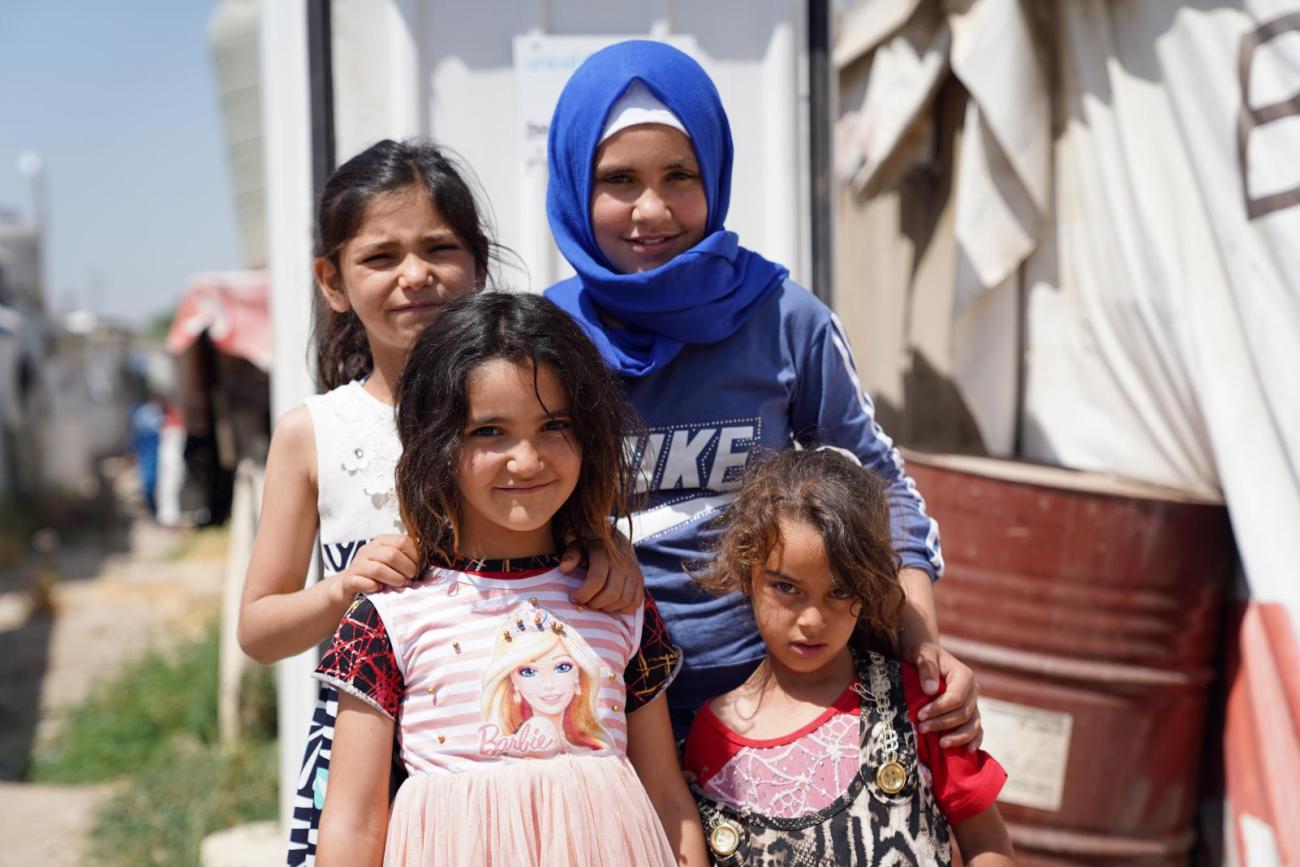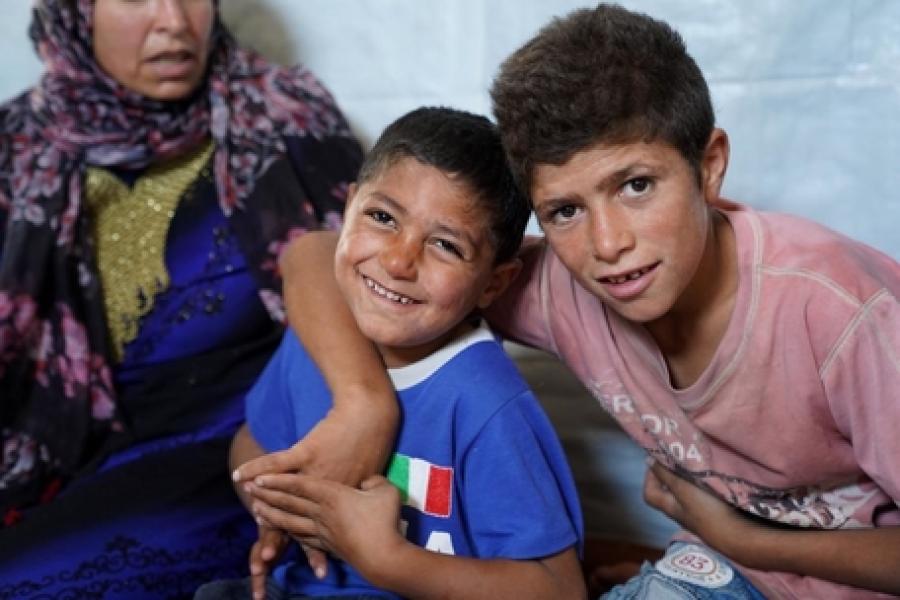Mitigating public health hazards

UNICEF supported by the governments of the United States and Canada, is working to ensure a safer future for Lebanon’s most vulnerable children.
Ensuring universal access to safe drinking water, along with the provision of the means to wash regularly in clean water and delivering access to hygienic toilet facilities, form a crucial platform of the United Nations' Sustainable Development Goals for 2030. They are also driving UNICEF's humanitarian interventions to mitigate public health hazards through the provision of WASH (Water, Sanitation and Hygiene) services in Lebanon.
For 38-year-old widow and mother of five, Merhje Khleif Al Hamoud, UNICEF’s WASH intervention – with its provision of their first purpose-built latrine and a guaranteed supply of fresh water – has had many positive health benefits for her and her children.
"When we moved here two years ago, there were no toilet facilities at all. I dug a hole in the ground at the back of our home. And this was our toilet."
She lives in Marej, outside Chtoura in Lebanon’s Bekaa Valley. Like many in her community, she struggles to find even occasional work and lives supported by donations and assistance from local and international agencies.
“I have four daughters, the eldest of whom is just 13”, Merhje says. "When we moved here two years ago, there were no toilet facilities at all. So, I did what all my neighbours had done – I dug a hole in the ground at the back of our home and built a basic wooden shelter around it. There was no door – I simply hung a curtain over the opening. And this was our toilet".
"Apart from my daughters' fears – and my own concerns – with having them go outside at night to use the toilet, the lack of privacy was very upsetting", she recalls, adding "and it was the most unhygienic toilet – with its wooden sides, and simply a hole that I'd dug, it was impossible to keep ourselves clean. My daughters were often unwell – we had enough water barely to wash".
Today, their toilet is a steel structure with a solid door.
The health and environmental impacts of such conditions are evident, with waterborne diseases including dysentery, hepatitis A, leishmaniosis, and typhoid being the leading diseases affecting children, peaking among those aged 0-4 years.
Merhje is one of more than 1,200 Marej-residents to have benefitted from UNICEF’s support in partnership with World Vision and funding from the United States and Canadian governments.
Today, their toilet – although still outside their home – is a steel structure with a solid door. "We all feel so much better about using the toilet," 13-year-old Najah reflects, "and it is so much easier to keep clean."
The family also receives a delivery of 1,000 litres of clean water every month. Merhje acknowledges the value of this to her family, and she reports that Najah has spent the past two years suffering from a series of what she feels were hygiene-related skin conditions. These are now, according to her mother, on the way to clearing up.
The latrine remains, essentially, a temporary structure, but it is well-built and, also as part of the WASH programme, its underground waste-water storage tank is hygienically emptied regularly.

Neighbour, Ali Jasem Abdallah, a short walk from Merhje’s home, heads a household of 11. Like his neighbour, when Ali Jasem moved to Marej, his house had no sanitary facilities.
"We built our own," he tells us, "yet with so many of us living this way, the effects were devastating, but given our circumstances, we had no alternative."
”When UNICEF came and told us they'd build a toilet inside and give us a new toilet outside, it changed all our lives."
One of his sons, Abed Al Razak, is a wheelchair user. Still just 8-years-old, Aboodi – as he is affectionately known – is unable to walk. Before receiving his wheelchair, he would crawl outside to access the makeshift latrine his father had built.
"He became unwell and developed persistent infections. We were all regularly unwell, and we knew why – a basic lack of hygiene,", Ali Jasem recalls. "So, when UNICEF came and told us they'd build a toilet inside and give us a new toilet outside, it changed all our lives."
Ali Jasem, himself partially-sighted, also uses the inside toilet – before its provision he always needed one of his children to take him to the lavatory.
"We feel able to take better care of Aboodi now."
His wife reports that everything got a lot easier after UNICEF and World Vision came. “The new toilets are much easier to keep clean with detergent. And now we also have our own water tank – enough to keep our home clean, to drink, and to bathe – our children used to shower once a week, now it’s every two days”.
“We feel able to take better care of Aboodi now. And as he grows he’ll understand the importance the privacy an indoor toilet gives him”, she adds.
Globally, water poverty, poor water quality and lack of sanitation contribute to millions of child deaths from preventable diseases every year.
In Lebanon, UNICEF and World Vision, with the support of the governments of the United States and Canada, are working to ensure a safer future for the country’s most vulnerable children and families.






